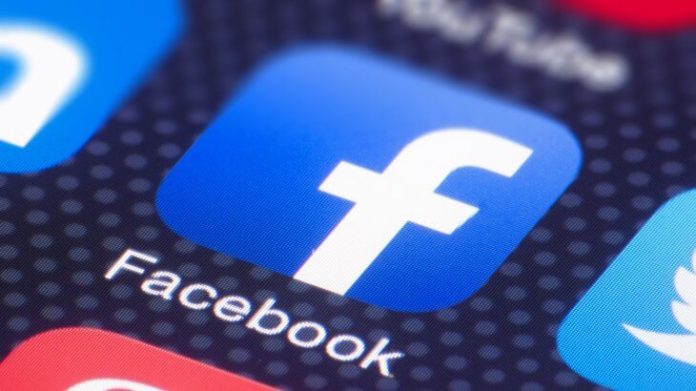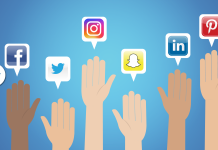This article is written by Anannya Sinha pursuing law from Symbiosis Law School, Noida. This article discusses the question of Facebook being a monopoly according to Indian laws.
Table of Contents
Introduction
Founded in 2004, Facebook is one of the most popular social media platforms that people from all over the globe use, irrespective of their age or gender. It is one of the world’s most valuable companies and is considered one of the Big Five companies in U.S. information technology, alongside Google, Apple, Microsoft and Amazon. Throughout its existence, Facebook has acquired multiple companies like Instagram and Whatsapp.
Facebook, the most popular social media platform, was the first to cross one billion registered accounts, and it now has more than 2.85 billion monthly active users. Currently, the firm owns four of the most popular social media sites, each with over one billion monthly active members.
Facebook in India
The number of social network users in India stood at around 216.5 million in 2016 and is forecast to amount to more than 336 million by 2020. From this figure, Facebook accounts for the majority of these users, as the social network is the most popular social network in the country.
As of December 2020, total Facebook users in India made up 28% of the overall Indian population. A report showed that there were 391,700,000 FB users in India by the end of December 2020. 75% of them were men, and the largest user group ranged between 25 to 34 years.
In April 2020, Facebook announced a $5.7 billion deal with the Indian multinational conglomerate Reliance Industries to purchase approximately 10 percent of Jio Platforms, Reliance’s digital media and services entity.
This has only increased Facebook’s control over the Indian social media scenario. Hence the penetration rate of Facebook in India is expected to rise from almost 15% from the year 2016 to 2021.
Why is Facebook considered a monopoly
At this point, Facebook owns 3 out of the 4 most used apps globally. It owns Facebook, Whatsapp and Instagram. Because of Facebook’s market dominance, any existing or new competitors find it difficult to compete in this arena. Facebook could be considered a monopoly that has too much power, for three simple reasons: its dominant user base, its pricing power, and its lack of direct competition. The dominant user base of Facebook is pretty evident with the extraordinary figures that show the number of users who are actually using apps owned by Facebook regularly. Facebook also makes the majority of its money by selling targeted ads, and it limits the number of ad spaces accessible to raise ad prices.
According to Zuckerberg, Facebook’s business “overlap(s)” with Google, Apple, Amazon, and Microsoft’s businesses “in different ways.” That is true, but none of those companies is a direct competitor of Facebook. Google tried several times to break into the social media sector, but none of its efforts — Orkut, Buzz, and Google+ — were able to match Facebook’s appeal.
Why should Facebook not be considered a monopoly
Yet Facebook wouldn’t be deemed a monopoly if we consider three other factors: its market share, the effectiveness of its ads, and its shifting demographics.
Even while Facebook is a huge player in online advertising, it can’t compete with Google. You could argue that Google and Facebook have a monopoly on online advertising, but you couldn’t argue that the smaller player had one. Google and Facebook combined is undoubtedly the biggest player in online advertising. It can be said that they do have a duopoly in the online advertising market, but Facebook is the smaller player when compared to Google and Facebook cannot be said to have a sole monopoly.
In terms of ad performance, Facebook isn’t the best, undermining the case for monopoly status. According to a recent study of senior ad buyers, Google’s ads had the best return on investment (ROI), with Facebook coming in second at 30%. The percentages on the other platforms were all in the single digits.
Finally, in this argument against a monopoly designation, Facebook does not have complete control over all of its users. The number of Facebook users aged 12 to 17 has decreased over time. Some of those users are being retained by Facebook through Instagram, but many are migrating to Snapchat, which Zuckerberg should have mentioned as growing competition. The age group of teenagers between the ages of 12 and 17 are considered to be the iron grip of any app. These users are supposed to be heavy users of the app, given their addictions to mobiles and social media. These users are also supposed to influence the use of the apps more and more amongst their peers. The future user base is also expected to mostly consist of these youngsters. It is hence extremely important for companies to retain this iron grip through time. Facebook has lost its iron grip and hence any question of holding the monopoly in the social media market.
Is the issue monopoly or privacy
The straightforward answer is that it is both. The FTC is now investigating Facebook, as well as other internet corporations such as Google. The probe has centred on the firms’ antitrust violations as well as their privacy policies. Unfortunately for Facebook, they look to have monopoly and privacy concerns both.
Facebook was hit with a record fine for privacy infractions, and now the American government has gone much farther, ruling Facebook’s social media market dominance illegal.
Is consumer welfare at stake
Monopolies are traditionally prohibited so that businesses cannot control consumer prices and can essentially charge whatever they want for their goods or services. The monopoly claim against Facebook, which provides all of its platforms to users for free, is based on what the anti-trust legislation refers to as “consumer welfare.”
When Facebook first launched, it advertised itself as the most private social media platform. At the time, the company boasted that it did not gather users’ private information and that its settings allowed you to manage who saw your profile. However, the company’s privacy policies have developed as well. Because ad sales account for the majority of Facebook’s revenue, the more information they have about their users, the better.
Consumers who want to engage in social media must agree to Facebook’s privacy policies to do so, thereby making their personal information their “payment” for doing so.
The battle is taking place in the courtroom and is expected to have a long-lasting impact on other companies who trade in consumer information.
Even though the Court does not agree with all of Facebook’s arguments, it does agree that the agency’s complaint is legally deficient and must be dismissed. The judge in the above case said that the FTC failed to show Facebook as a monopoly in the court of law. The FTC has not shown enough evidence to show that Facebook has monopoly power in the market for Personal Social Networking (PSN) Services.
Facebook monopoly in India
WhatsApp, (Facebook) Messenger, and Facebook—all three from the United States—were the top three non-gaming apps downloaded in India in 2015. By 2019, however, Chinese applications TikTok (which includes Musical.ly) and Likee (previously LIKE Video) had surpassed Facebook and its chat app as the top three. TikTok has knocked WhatsApp, which was the table topper in 2015, to second place.
One must go across the border to China to explain the proliferation of these Chinese apps in India. The Chinese Communist Party made certain that Google and other Western technology corporations had no place on their soil. Nonetheless, the Chinese proved to be technologically superior to even the United States.
The greatest achievement of the Chinese players is that they have put equal weight on their content strategy as they have on their product and technology strategies. They constructed a mature ecosystem of micro-content creators across villages and small towns that turned out short-format videos that appealed to India’s sensibilities, and they created teams for content curation for each vernacular language.
Conclusion
To conclude, I do not believe that Facebook is, or should be considered as a monopoly in the social media platform scenario. Facebook, for sure, owns some of the most popular social media platforms like Whatsapp and Instagram, but it can never replace all other social media platforms, with Google being its top competitor. With respect to the Indian social media scenario specifically, there is no doubt whatsoever regarding the fact that Facebook is used extensively among the masses, particularly middle-aged people. But, it has lost its iron grip in the Indian market as more and more youngsters are shifting to platforms like Snapchat and Tik Tok. A lot of new Chinese apps and social media platforms are giving tough competition to Facebook and have also managed to surpass the reach among users in India. This clearly indicated the fact that Facebook should not be considered as a monopoly, at least in the Indian context.
References
- https://reason.com/2021/06/29/the-ftc-fails-to-prove-facebook-is-a-monopoly/
- https://www.theweek.in/news/biz-tech/2020/07/01/how-chinese-apps-ended-facebooks-monopoly-in-india.html
- https://parentology.com/why-is-facebook-considered-a-monopoly/
- https://www.nytimes.com/2020/12/09/technology/facebook-antitrust-monopoly.html
- https://www.wired.com/story/facebook-ftc-antitrust-case-smoking-gun/?utm_social-type=owned&utm_source=twitter&utm_medium=social&utm_brand=wired&mbid=social_twitter
- https://www.statista.com/statistics/272014/global-social-networks-ranked-by-number-of-users/
LawSikho has created a telegram group for exchanging legal knowledge, referrals, and various opportunities. You can click on this link and join:
https://t.me/joinchat/J_0YrBa4IBSHdpuTfQO_sA
Follow us on Instagram and subscribe to our YouTube channel for more amazing legal content.
 Serato DJ Crack 2025Serato DJ PRO Crack
Serato DJ Crack 2025Serato DJ PRO Crack











 Allow notifications
Allow notifications


